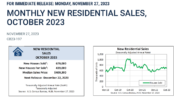Budgeting is the key to investing. There are two basic things that you can do with money. You can spend it and you can save it. If you are spending money, that means you are not saving it. It’s a zero-sum game.
If you do not have a personal budget, you are basically setting yourself up for financial failure. In addition, if you don’t have a budget, you will make significantly less money in the stock market that you otherwise can.
Every extra dollar that you can save every month will equate to making thousands of dollars in the stock market over time. With the power of compounding, the cost of spending today is really that high. You can have a great list of stocks to buy but it makes no sense to start buying if you don’t have a budget.
What a Budget has to do with Investing in Stocks
The answer to this question is simple. If you are not saving a surplus of your income, you have no money to invest. By having a budget, not only can you know how much you can put towards investing each month, but you can also find ways to add to the investment capital that you have to work with. The more capital, the more money you make on the back end.
Your Budget Needs to be Realistic
The number one reason I see that people fail to follow their budget is it is not realistic. It is easy to be stingy when it’s on paper. But when it comes to real life and real things, it becomes a little more difficult. That is why your budget needs to reflect your real lifestyle.
The other side of this coin is that a budget will reveal how much money you really spend. This can be an encouragement to some and a scary realization for others. Either way, a household budget helps.
Your Budget Needs to be Simple
The other problem that I see when people fail in the area of budgeting is that it was too complicated. They had a million different categories and they planned down to the penny. If you want to be successful at preparing and keeping a budget, it needs to be simple.
Your Budget Needs to Reflect Your Values
Another big mistake that I see is that people try to conform to some arbitrary value system when it comes to spending their money. There are guidelines out there that are helpful in terms of knowing how much should go to what, but at the end of the day, it needs to reflect your values, not someone else’s.
For example, you may be okay living in a dump on the bad side of town. But you may really enjoy going to nice restaurants and going often. If you are willing to sacrifice your residence for being able to enjoy eating out, that is your business.
Prioritizing Your Budget
That being said, you should always prioritize your budget. Your housing and food should always come first. If your rent is not paid, you should not be paying your late credit card bills. If it’s a choice between food for your family and paying an outstanding medical bill, you should forgo your medical bills.
Practical Advice – Using Cash
One of the best ways to keep a budget simple is to use cash. You simply put cash into envelopes based on the categories that you set up.
Here are some budgeting forms by Dave Ramsey that are super helpful.







